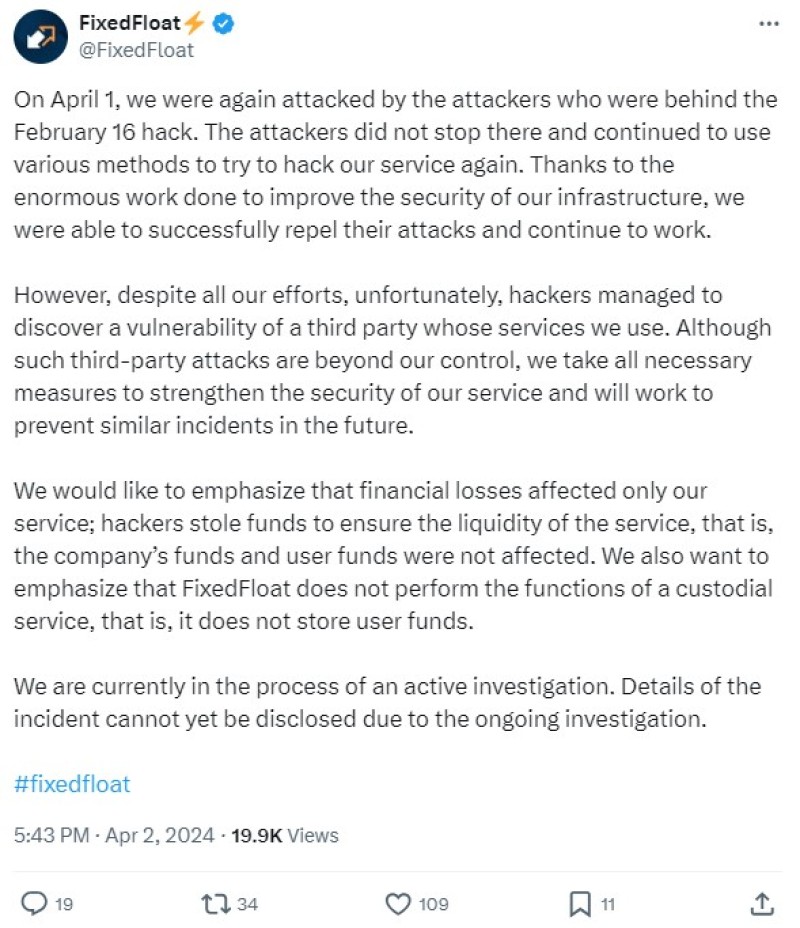Crypto Exchange FixedFloat grapples with its second security breach, losing $2.80 million in the process.
FixedFloat's Double Trouble
Cryptocurrency exchange FixedFloat is reeling from yet another security breach, this time losing a staggering $2.80 million. The breach, detected by blockchain forensics firm Cyvers, raised alarms as suspicious transactions drained funds from FixedFloat's hot wallet on the Ethereum blockchain.

Hacked Again: The Breach Details
The incident, which unfolded on April 2, involved the transfer of various digital assets, including ETH, USDT, WETH, DAI, and USDC, to a dubious address. Malicious actors swiftly converted these assets into ETH through a decentralized exchange (DEX) before funneling them to eXch, leaving FixedFloat's compromised hot wallet inactive and prompting the company to take its website offline for maintenance.
This isn't the first time FixedFloat has faced such a crisis. Just two months earlier, on February 16, the exchange grappled with a security compromise that saw a staggering $26 million loss. Analysts at Cyvers noted a pattern, suggesting an access control issue similar to the previous breach.
FixedFloat has acknowledged the breach, attributing it to the same adversaries responsible for the February incident. Despite enhanced security measures, the hackers exploited a vulnerability in a third-party service. The exchange assured users that only operational liquidity funds were stolen and that their assets remained unaffected due to the non-custodial nature of FixedFloat's service.

Investigation and Reinforcement
FixedFloat is currently conducting a comprehensive investigation into the breach, aiming to bolster its security framework against future attacks. While details remain scarce, the exchange is committed to fortifying its defenses and mitigating risks to safeguard user interests.
Conclusion
The latest security breach at FixedFloat underscores the persistent challenges faced by cryptocurrency exchanges in safeguarding user funds. As the company navigates through the aftermath of this crisis, users remain vigilant, hoping for robust security measures to prevent such incidents in the future.
 Saad Ullah
Saad Ullah

 Saad Ullah
Saad Ullah


